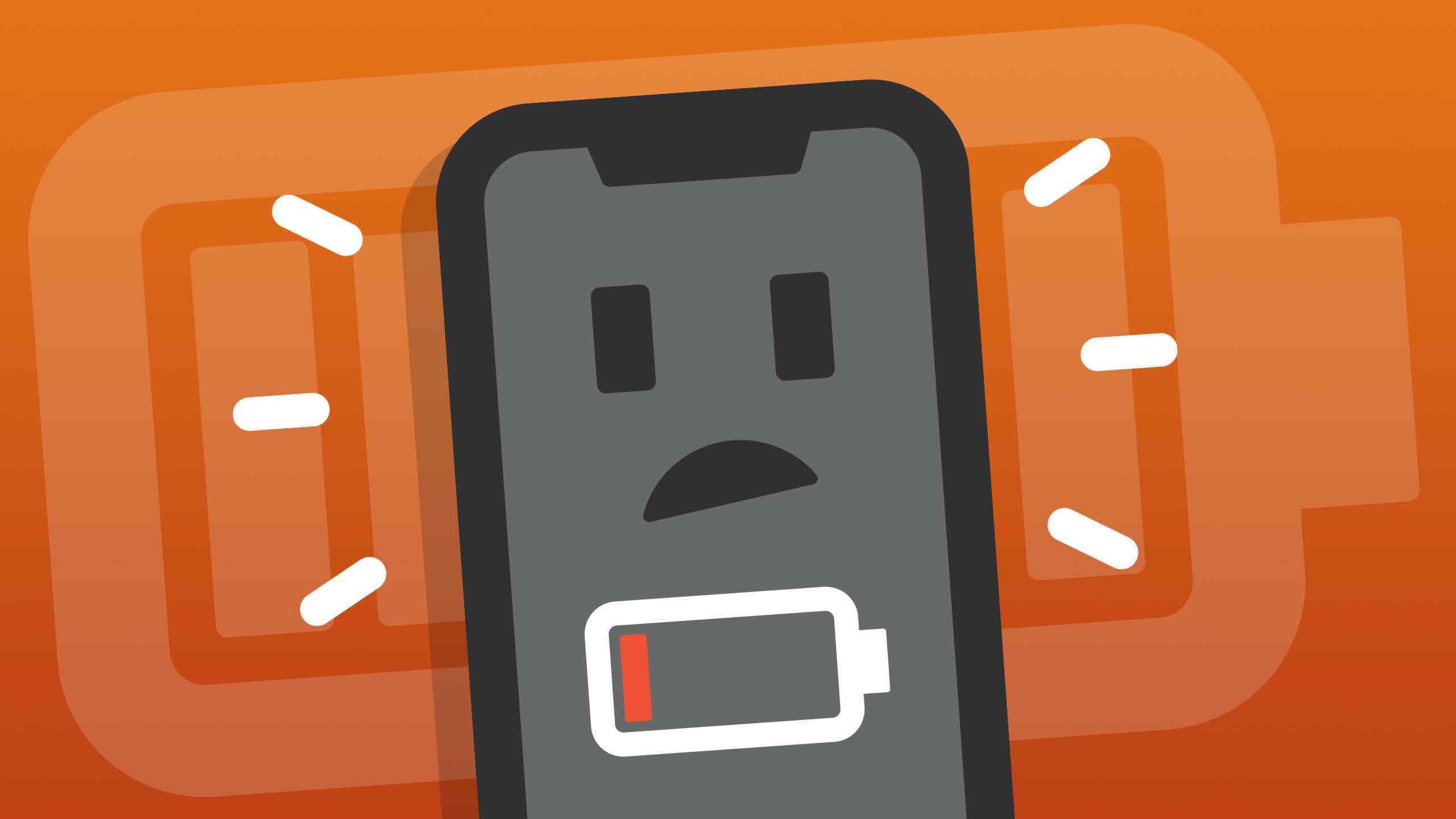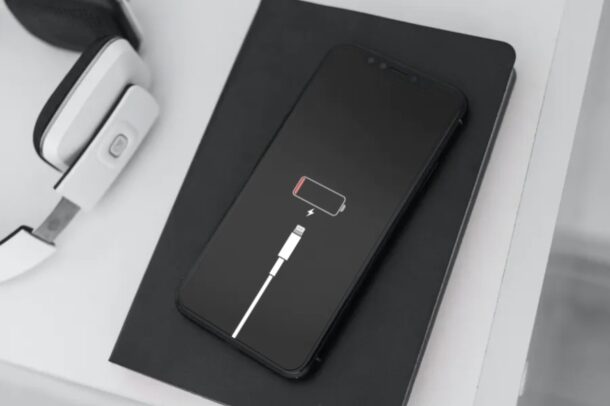An iPhone battery health is considered bad when its capacity drops below 80%, according to Apple’s standards. Apple provides a 1-year warranty that covers any iPhone battery with a capacity of 80% or higher.
It is not uncommon to find iPhones that maintain a battery capacity of 95% or above even after one year of use. This showcases Apple’s emphasis on battery health and its commitment to delivering optimal performance to users. Understanding the factors that affect battery health can help users maintain their iPhone’s battery capacity and prolong its lifespan.
We will explore the importance of iPhone battery health and provide tips on how to preserve it.
Understanding Iphone Battery Health
Discover why understanding iPhone battery health is crucial, especially when it’s bad. Learn how to check battery cycles and capacity, and why maintaining optimal battery health is essential for your device’s performance.
:
Battery health is an essential aspect of your iPhone’s performance and longevity. It refers to the overall health and capacity of the battery, which determines how long it can power your device on a single charge. Understanding iPhone battery health is crucial for optimizing your device’s performance and ensuring its longevity.
What Is Iphone Battery Health?
- Battery health is a measure of the maximum capacity your iPhone’s battery can hold compared to its original capacity. It is expressed as a percentage and can be checked in the Battery settings on your device.
- A new iPhone typically has a battery health of 100%, indicating that it can hold its original capacity. However, over time and with usage, the battery health may decline, reducing its ability to hold a charge.
How Does Iphone Battery Health Affect Performance?
- Deteriorating battery health can impact your iPhone’s performance. As the battery’s capacity declines, it may lead to shorter battery life, requiring more frequent charging.
- A degraded battery can also cause unexpected shutdowns or inability to power on the device. In extreme cases, it may even result in the need for battery replacement or repair.
- Your iPhone’s performance may be affected by the Battery Health Management feature, which dynamically manages the battery charging to extend its lifespan. This feature can slightly impact performance to prevent battery aging.
Factors That Contribute To Bad Iphone Battery Health:
Several factors can contribute to bad iPhone battery health, causing its capacity to degrade over time. Here are some common causes:
- Frequent charging and discharging: Continuous cycles of charging and discharging can wear out the battery faster.
- Operating at extreme temperatures: Exposure to high or low temperatures can negatively impact battery health.
- Using unauthorized or faulty chargers: Using non-Apple chargers or low-quality charging accessories can affect battery health.
- Battery age: Like any other battery, your iPhone’s battery has a limited lifespan and will naturally degrade over time.
- Memory-intensive apps and processes: Running demanding apps or processes for extended periods can strain the battery and impact its health.
- Overusing battery-intensive features: Constant use of power-hungry features like GPS, Bluetooth, or background app refresh can contribute to battery drain and reduced health.
By understanding iPhone battery health and the factors that contribute to its degradation, you can make informed choices to optimize your device’s performance and prolong its battery life. So, make sure to regularly check your battery health and implement good charging practices to keep your iPhone running smoothly.
Signs Of Bad Iphone Battery Health
Iphone battery health is considered bad when the battery capacity falls below 80%. Apple considers any iPhone with 80% or above battery capacity to be in optimal condition. It’s not uncommon for iPhones to maintain a capacity of 95% or above even after one year of use.
If you notice any of the following signs, it may indicate that your iPhone battery health is in a poor state. Knowing these signs will help you identify potential battery issues and take appropriate action:
Decreased Battery Life:
- Your iPhone’s battery drains faster than usual.
- It doesn’t hold a charge for as long as it used to.
- The battery percentage drops significantly even with minimal usage.
Slow Performance And Lag:
- Apps take longer to launch or respond sluggishly.
- Your iPhone freezes or becomes unresponsive frequently.
- Scrolling through web pages or menus feels slow and choppy.
Unexpected Shutdowns:
- Your iPhone turns off unexpectedly even when the battery percentage is not critically low.
- It powers down during normal usage, without any warning.
Difficulty Charging:
- Your iPhone doesn’t charge properly or at all, even when connected to a power source.
- It takes an unusually long time to fully charge.
- The charging cable gets disconnected or loose frequently.
By being aware of these signs, you can troubleshoot issues with your iPhone battery health or seek professional help if needed. Remember, taking care of your battery will ensure optimal performance and longevity for your device.
Solutions For Bad Iphone Battery Health
Discover effective solutions to improve the bad health of your iPhone battery. Learn about the causes of battery degradation, check battery cycles and real max capacity, and implement strategies like low power mode and optimized notifications to prolong battery life.
Don’t let bad battery health slow you down!
If you’re experiencing bad iPhone battery health, there are several solutions you can try to improve the overall performance and longevity of your device. Here are some effective ways to address the issue:
Calibrating The Battery:
- Drain your iPhone battery completely until it turns off.
- Plug in your iPhone and let it charge to 100% without interruption.
- Once fully charged, leave your iPhone plugged in for an additional two hours to ensure the battery is calibrated.
Optimizing Battery Usage:
- Enable the “Low Power Mode” option to conserve battery life.
- Adjust screen brightness to a lower level.
- Disable unnecessary notifications and background app refresh.
- Limit the use of resource-intensive apps and features.
Updating Ios Software:
- Regularly update your iOS software to ensure optimal battery performance.
- Go to “Settings” > “General” > “Software Update” to check for available updates.
- Install the latest updates to fix any battery-related bugs or issues.
Resetting Settings:
- Resetting settings can help resolve software-related battery problems.
- Go to “Settings” > “General” > “Reset” > “Reset All Settings”.
- Note that this process will reset all your device settings, so make sure to back up your data before proceeding.
Replacing The Battery:
- If all else fails and your iPhone battery health remains consistently poor, consider getting the battery replaced.
- Contact an authorized Apple service provider or visit an Apple Store to inquire about battery replacement options.
By following these solutions, you can effectively address bad iPhone battery health issues and improve the overall performance and longevity of your device. Remember to regularly maintain and optimize your iPhone battery to ensure it operates at its best.

Credit: www.payetteforward.com
Frequently Asked Questions For What Iphone Battery Health Is Bad
Is 70 Percent Battery Health Good For Iphone?
Apple considers 70 percent battery health to be below optimal condition for an iPhone.
Is 72 Percent Battery Health Bad For Iphone?
No, 72 percent battery health is not considered bad for an iPhone. Apple considers any iPhone with a battery capacity of 80% or above to be in optimal condition.
At What Battery Health Percentage Should An Iphone Battery Be Replaced?
Apple recommends replacing an iPhone battery when its health percentage drops below 80%.
Is 74 Battery Capacity Bad?
A battery capacity of 74% is considered below average for an iPhone.
Conclusion
To ensure optimal performance and longevity of your iPhone, it is important to pay attention to your battery health. While a battery capacity of 70% may seem acceptable, it is actually considered to be on the lower end of the spectrum.
Apple defines a battery capacity of 80% or above as optimal condition, and their warranty covers any battery at this level or higher. In fact, many iPhones still maintain a battery capacity of 95% or more after a year of use.
Taking steps to maintain good battery health, such as avoiding frequent and deep discharge cycles, can significantly improve the overall lifespan of your iPhone battery. By staying attentive to your battery health, you can ensure that your iPhone continues to perform at its best for longer periods of time.
Remember, a healthy battery leads to a smooth and uninterrupted user experience.







